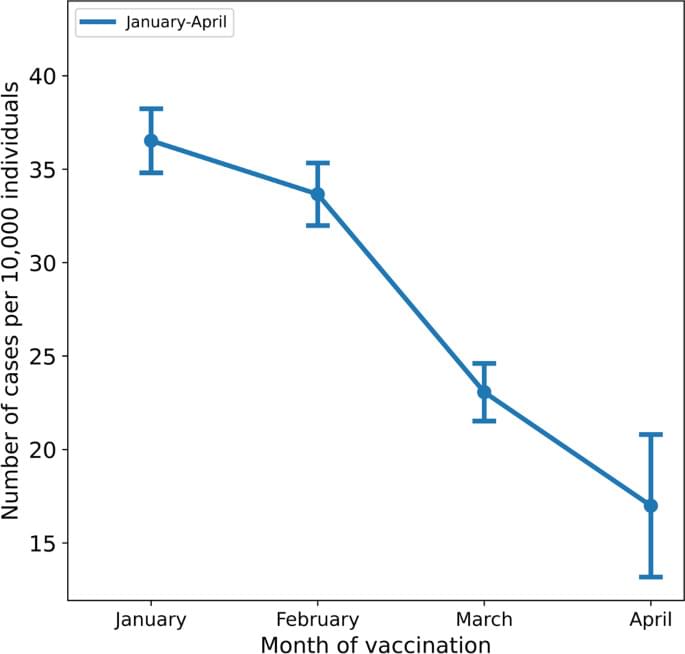The short-term effectiveness of a two-dose regimen of the BioNTech/Pfizer mRNA BNT162b2 severe acute respiratory syndrome coronavirus 2 (SARS-CoV-2) vaccine was widely demonstrated. However, long term effectiveness is still unknown. Leveraging the centralized computerized database of Maccabi Healthcare Services (MHS), we assessed the correlation between time-from-vaccine and incidence of breakthrough infection between June 1 and July 27, the date of analysis. After controlling for potential confounders as age and comorbidities, we found a significant 1.51 fold (95% CI, 1.38−1.66) increased risk for infection for early vaccinees compared to those vaccinated later that was similar across all ages groups. The increased risk reached 2.26-fold (95% CI, 1.80−3.01) when comparing those who were vaccinated in January to those vaccinated in April. This preliminary finding of vaccine waning as a factor of time from vaccince should prompt further investigations into long-term protection against different strains.
The duration of effectiveness of SARS-CoV-2 vaccination is not yet known. Here, the authors present preliminary evidence of BNT162b2 vaccine waning across all age groups above 16, with a higher incidence of infection in people who received their second dose early in 2021 compared to later in the year.









Comments are closed.